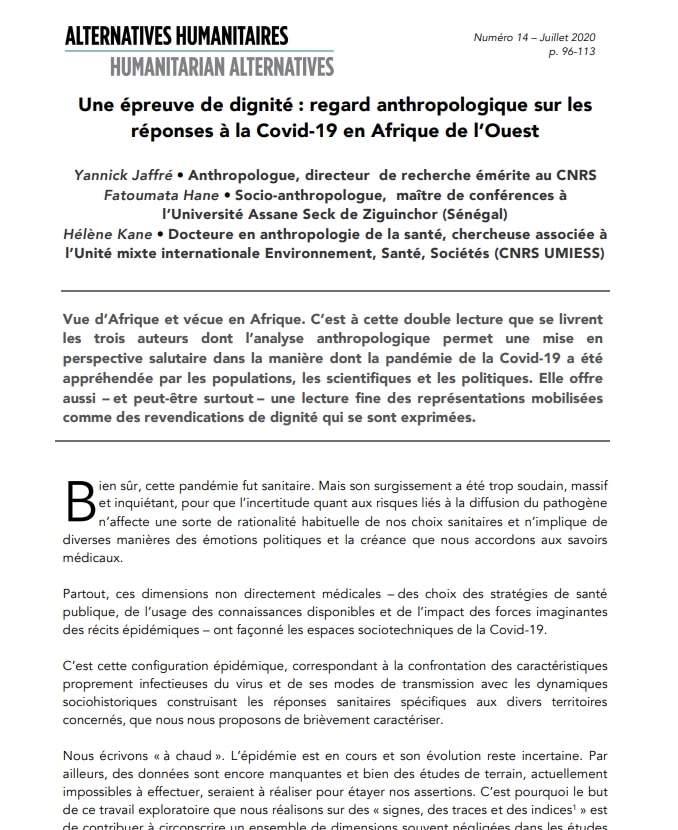Despite impressive global investment in reproductive health programs in West Africa, maternal mortality remains unacceptably high and obstetric care is often inadequate. Fertility is among the highest in the world, while contraceptive prevalence remains among the lowest. This paper explores the social and technical dimensions of this situation. We argue that effective reproductive health programs require analyzing the interfaces between technical programs and the social logics and behaviors of health professionals and client populations. Significant gaps between health programs’ goals and the behaviors of patients and health care professionals have been observed. While public health projects aim to manage reproduction, sexuality, fertility, and professional practices are regulated socially. Such projects may target technical practices, but access to care is greatly influenced by social norms and ethics. This paper shows how an empirical anthropology that investigates the social and technical interfaces of reproduction can contribute to improved global health.
Par Yannick Jaffré|2025-01-22T16:33:50+01:0011 avril 2016|Société et développement, Société et développement|Commentaires fermés sur Where the lay and the technical meet: Using an anthropology of interfaces to explain persistent reproductive health disparities in West Africa
Articles similaires

Corps biologiques, corps désirants, corps politiques. Les interfaces sociales et techniques des programmes de « santé de la reproduction » en Afrique de l’Ouest
Galerie




